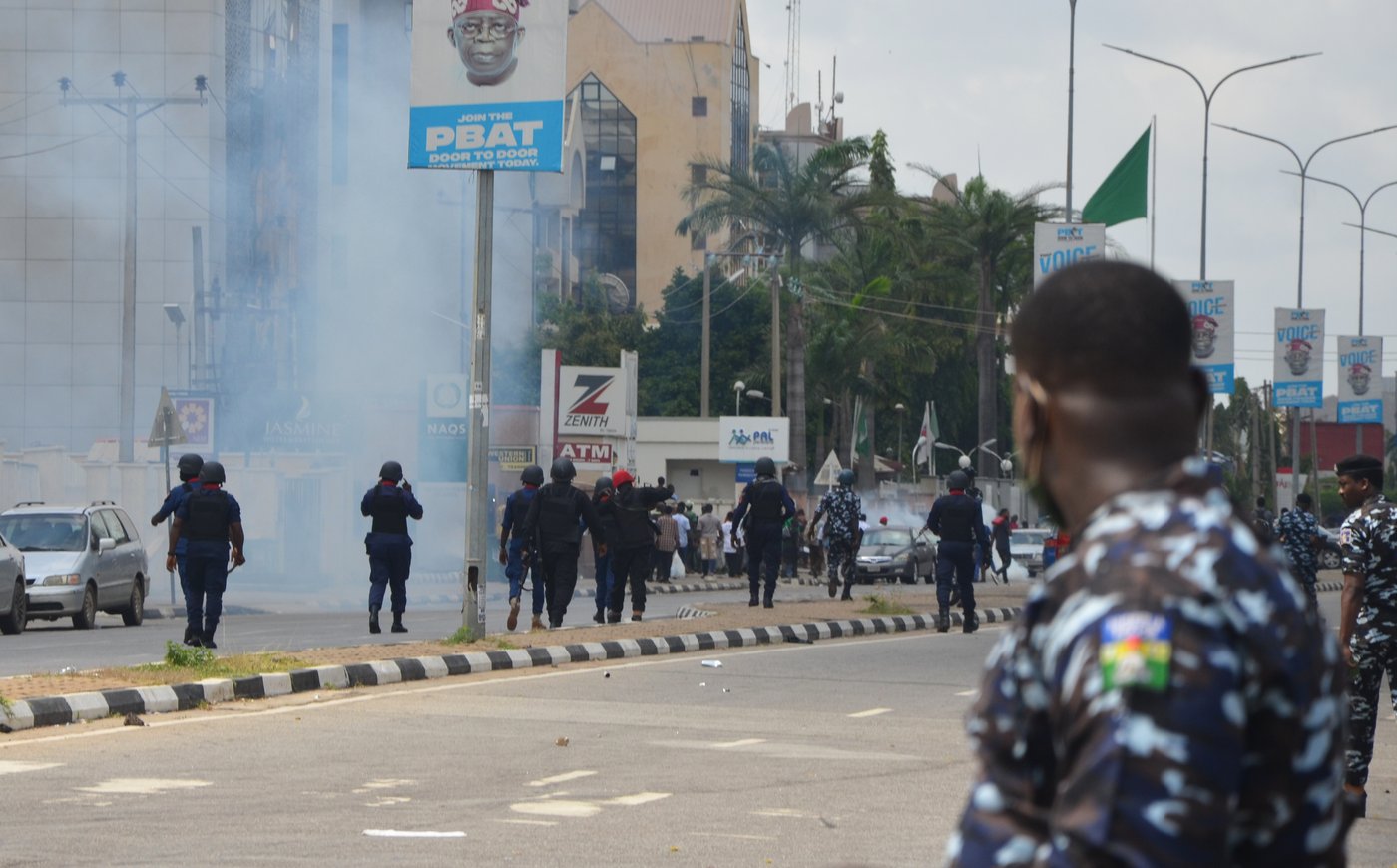Elevate your local knowledge
Sign up for the iNFOnews newsletter today!
Sign up for the iNFOnews newsletter today!
Selecting your primary region ensures you get the stories that matter to you first.

ABUJA, Nigeria (AP) — Nigeria’s president on Friday replaced top security officials as the West African country grapples with unabated violence in the conflict-hit north and myriad security challenges.
No reason was given but the shake-up comes as the government has denied rumors of a coup plot in the wake of local media reports that at least 20 military officers were arrested in September, including a brigadier general and a colonel.
Nigeria’s capital, Abuja, was also shaken by protests this week as police fired tear gas and arrested dozens of protesters who took to the streets to demand the release of Nnamdi Kanu, leader of the Indigenous People of Biafra separatist group that seeks independence for Nigeria’s southeastern region.
A wide spectrum of armed groups operate across the country. The Islamic militant Boko Haram, Nigeria’s homegrown jihadi group, this year mounted a major resurgence. The group took up arms in 2009 to fight Western education and impose its radical version of Islamic law.
Boko Haram’s splinter faction Ansaru and the Islamic State group’s affiliate, known as Islamic State West Africa Province, have also staged attacks. Criminal groups specializing in kidnapping for ransom and looting — commonly referred to as bandits — are also dominant.
In recent months, Islamic extremists have repeatedly overrun military outposts, mined roads with bombs and raided civilian communities, raising fears of a possible return to the peak insecurity of the Boko Haram era despite the military’s claims of success against them.
Earlier this year, the U.S. government approved the sale of $346 million in arms to bolster Nigeria’s fight against insurgency and criminal groups.
According to the presidential spokesman, Nigerian President Bola Tinubu fired three top security officials on Friday — Christopher Musa, chief of defense staff; Emmanuel Ogalla, chief of naval staff, and Hassan Abubakar, chief of air staff.
Tinubu appointed Olufemi Oluyede, the former chief of army staff, as the new chief of defense staff.
W. Shaibu, I. Abbas and S.K. Aneke were appointed as the chiefs of army, air force, and naval staff. The president tasked them with improving “the professionalism, vigilance and comradeship that define the Armed Forces of Nigeria,” spokesman Sunday Dare said in a statement.
The denial of a coup plot by Nigeria’s defense headquarters earlier this week did little to calm public fears, as the topic draws widespread attention.
In the past three years, Mali, Burkina Faso, and Niger each saw a military takeover, a trend that analysts warn could continue across West Africa.
“Some of us saw these changes coming,” said Senator Iroegbu, a security analyst based in Abuja. “This also means that in the current state of events, the administration might be prioritizing regime protection above any other security threats.”
This site is protected by reCAPTCHA and the Google Privacy Policy and Terms of Service apply.
Want to share your thoughts, add context, or connect with others in your community?
You must be logged in to post a comment.